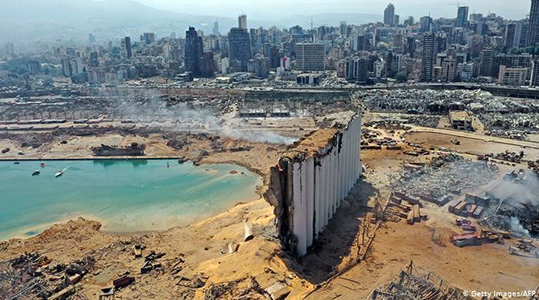A report issued by the Institute of International Finance showed that Beirut port explosion could deepen the economic recession in Lebanon from a 15% contraction previously expected to 24% this year. Indicating that the Lebanese economy was already collapsing even before the explosion in light of a sharp rise in inflation levels and a decline in the price of the national currency (the Lira) against the dollar.
In this context, Garbis Iradian, chief economist for the Middle East and North Africa region at the Institute, said, "the government has failed to achieve any development along the path of reforms necessary to open the way for access to international financing, including financing the International Monetary Fund," noting that "it is expected that the visit of the French President Emmanuel Macron, with the growing pressure from the demonstrators, will contribute to the drafting of a new political compact that will facilitate the implementation of reforms.
In parallel, less than a week after the massive explosion that destroyed Beirut’s port and a few neighborhoods in the capital, causing heavy losses of lives and property, Lebanese Prime Minister Hassan Diab resigned, confirming in a speech to the Lebanese that “corruption is greater than the state, and what happened in Beirut is the explosion of one of the examples of corruption," attacking the main political forces, calling for a change in the political class, describing it as "the tragedy of the Lebanese people."
Source (Al Khaleej Newspaper-UAE, Edited)

